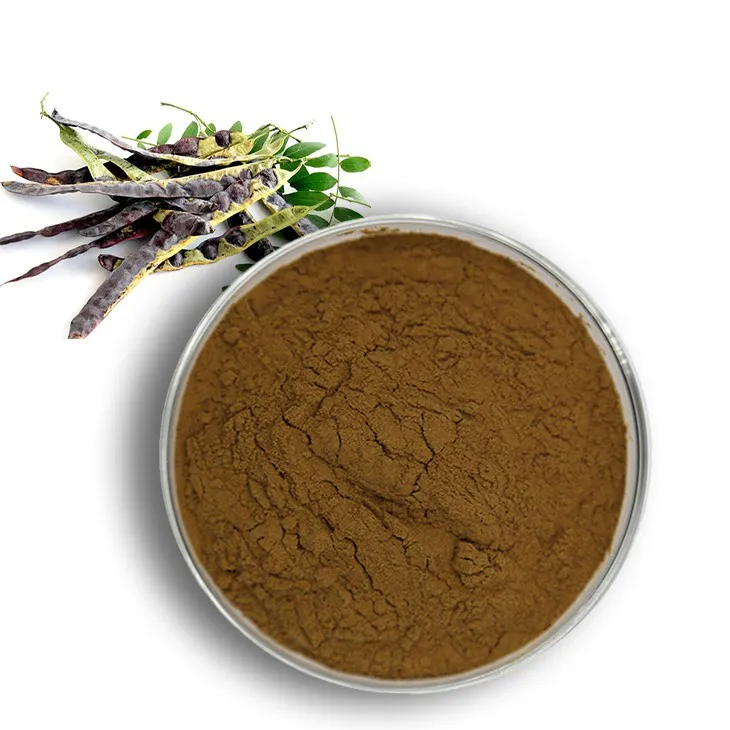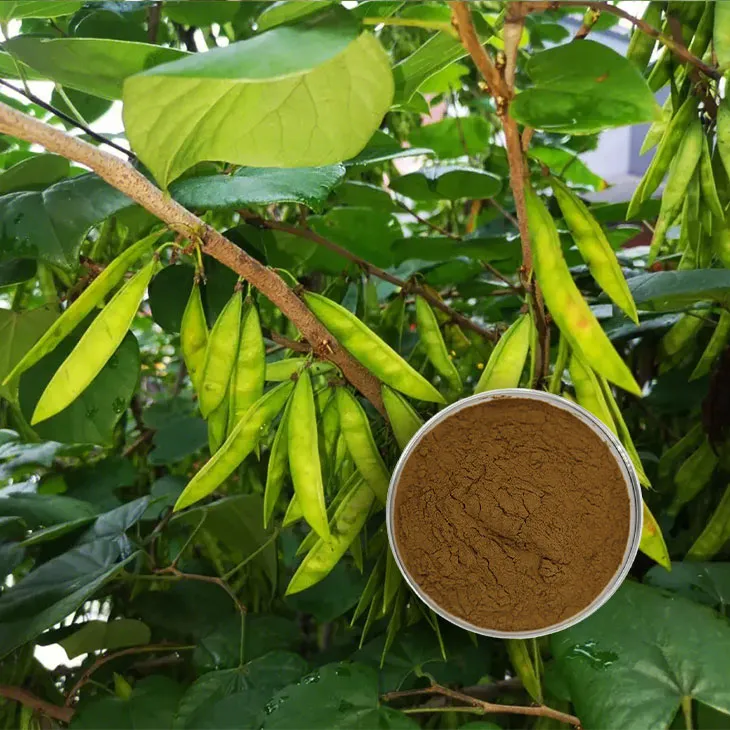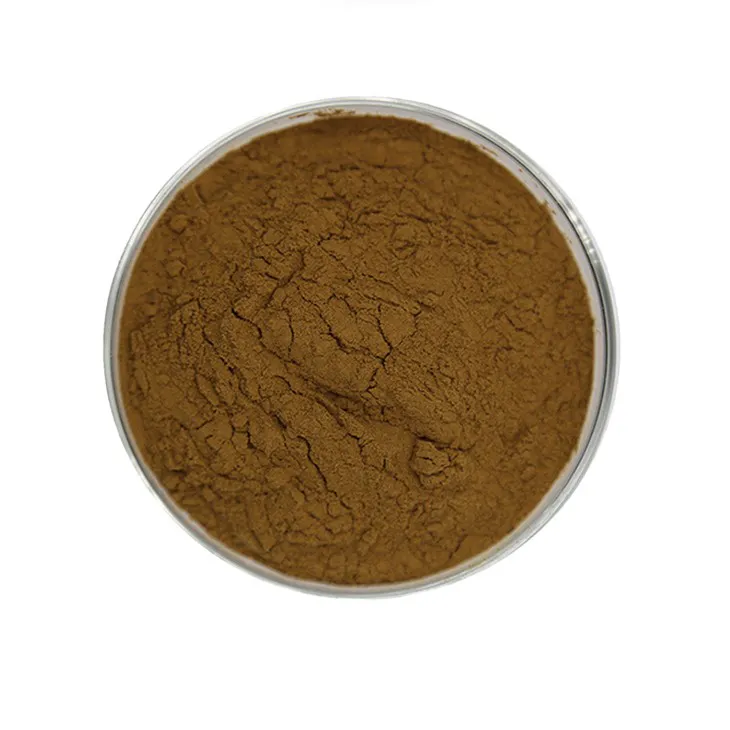- 0086-571-85302990
- sales@greenskybio.com
10 Saponin Extracts That Are Helpful for Improving Health
2024-12-17

Introduction
In recent years, Saponin Extracts have gained significant attention in the field of health and wellness. These natural compounds, found in a variety of plants, possess a wide range of beneficial properties. From fighting inflammation to acting as powerful antioxidants, Saponin Extracts can have a profound impact on our overall health. In this article, we will explore ten different Saponin Extracts that are particularly helpful for improving health.

Ginseng Saponins
Ginseng saponins, also known as ginsenosides, are one of the most well - known saponin extracts. Ginseng has been used in traditional medicine for centuries, and its saponins are thought to be responsible for many of its health - promoting effects.
One of the key benefits of ginseng saponins is their ability to enhance immune function. They can stimulate the production of immune cells, such as lymphocytes and macrophages, which help the body fight off infections. Additionally, ginseng saponins have been shown to have adaptogenic properties, meaning they can help the body adapt to stress. This can be beneficial for those dealing with chronic stress or fatigue.
Another important aspect of ginseng saponins is their potential impact on cognitive function. Some studies suggest that they may improve memory, concentration, and overall mental performance. This could be due to their ability to increase blood flow to the brain and protect brain cells from oxidative damage.

Astragalus Saponins
Astragalus saponins are derived from the Astragalus plant, which has a long history of use in traditional Chinese medicine. These saponins are known for their immunomodulatory effects.
They can strengthen the immune system by enhancing the activity of immune cells and increasing the production of antibodies. This makes them potentially useful in preventing and treating infections. Moreover, astragalus saponins have been found to have anti - inflammatory properties. They can reduce inflammation in the body by inhibiting the production of inflammatory mediators such as cytokines.
In addition, astragalus saponins may have a positive impact on cardiovascular health. They can help regulate blood pressure, improve blood lipid profiles, and protect the heart from oxidative stress.

Soapwort Saponins
Soapwort saponins are obtained from the Soapwort plant. These saponins have been used for centuries for their cleansing properties, but they also offer several health benefits.
One of the main uses of soapwort saponins is in the treatment of skin conditions. They can help soothe irritated skin, reduce inflammation, and promote wound healing. They are often used in natural skincare products for these reasons.
Soapwort saponins also have expectorant properties, which means they can help to loosen and expel mucus from the respiratory tract. This can be beneficial for those with coughs, bronchitis, or other respiratory conditions.

Quillaja Saponins
Quillaja saponins are extracted from the Quillaja tree. These saponins are widely used in the pharmaceutical and food industries due to their emulsifying and foaming properties.
In terms of health benefits, quillaja saponins have been shown to have immunostimulatory effects. They can enhance the immune response by activating immune cells such as dendritic cells. This makes them potentially useful in the development of vaccines.
Quillaja saponins also have antimicrobial properties. They can inhibit the growth of bacteria, fungi, and viruses, which could be beneficial for preventing and treating infections.
Medicago Saponins
Medicago saponins are found in plants of the Medicago genus, such as alfalfa. These saponins have several interesting health - promoting properties.
One of the benefits of medicago saponins is their role in cholesterol management. They can bind to cholesterol in the digestive tract and prevent its absorption, which may help lower blood cholesterol levels.
Medicago saponins also have anti - carcinogenic potential. Some studies suggest that they may be able to inhibit the growth and spread of cancer cells, although more research is needed in this area.
Panax Notoginseng Saponins
Panax notoginseng saponins are derived from the Panax notoginseng plant. This plant has been used in traditional Chinese medicine for its hemostatic and anti - inflammatory properties.
The saponins from this plant can improve blood circulation by inhibiting platelet aggregation and reducing blood viscosity. This can be beneficial for those at risk of cardiovascular diseases.
Additionally, panax notoginseng saponins have anti - inflammatory and analgesic effects. They can reduce inflammation and relieve pain, making them potentially useful in the treatment of inflammatory conditions and pain management.
Liquorice Saponins
Liquorice saponins, also known as glycyrrhizic acid and its derivatives, are found in the liquorice plant. These saponins have a variety of health - related applications.
One of the important functions of liquorice saponins is their role in digestive health. They can help soothe the digestive tract, reduce inflammation, and may even have a beneficial effect on ulcers.
Liquorice saponins also have anti - viral properties. They can inhibit the replication of certain viruses, such as the herpes simplex virus, which could be useful in the treatment of viral infections.
Silk Tree Saponins
Silk tree saponins are obtained from the Silk tree. These saponins have been studied for their potential health benefits.
One area of interest is their impact on mood and stress management. Some research suggests that silk tree saponins may have anxiolytic and antidepressant - like effects, perhaps by modulating neurotransmitter levels in the brain.
Silk tree saponins also have anti - inflammatory properties, which can contribute to overall health by reducing chronic inflammation in the body.
Horse Chestnut Saponins
Horse chestnut saponins are extracted from the Horse chestnut tree. These saponins are mainly known for their effects on vascular health.
They can strengthen the walls of blood vessels, improve venous return, and reduce swelling in the legs. This makes them useful in the treatment of varicose veins and other venous disorders.
Horse chestnut saponins also have anti - inflammatory properties, which can help reduce inflammation in the blood vessels and surrounding tissues.
Conclusion
In conclusion, saponin extracts offer a wide range of health benefits. The ten saponin extracts discussed in this article - ginseng saponins, astragalus saponins, soapwort saponins, quillaja saponins, medicago saponins, panax notoginseng saponins, liquorice saponins, silk tree saponins, horse chestnut saponins - each have their own unique properties that can contribute to improved health. Whether it's enhancing immune function, reducing inflammation, managing cholesterol, or improving mood, these natural compounds have the potential to play an important role in our well - being. However, it's important to note that while saponin extracts show promise, more research is often needed to fully understand their mechanisms of action and to ensure their safe and effective use.
FAQ:
What are the main health benefits of saponin extracts?
Saponin extracts offer a range of health benefits. They can act as antioxidants, which help protect cells from damage caused by free radicals. They also have anti - inflammatory properties, reducing inflammation in the body. Some saponin extracts may support the immune system, improve cardiovascular health, and even have potential anti - cancer effects.
How do saponin extracts work as antioxidants?
As antioxidants, saponin extracts work by donating electrons to free radicals. Free radicals are unstable molecules that can cause oxidative stress and damage to cells. By neutralizing these free radicals, saponin extracts help prevent cell damage and may reduce the risk of various diseases associated with oxidative stress, such as heart disease and certain cancers.
Can saponin extracts help with weight loss?
Some saponin extracts may have potential benefits for weight loss. They can affect metabolism in a way that may help the body burn more calories. Additionally, they may help regulate appetite, reducing overeating. However, more research is needed to fully understand their role in weight management.
Are there any side effects of saponin extracts?
While saponin extracts are generally considered safe for most people when consumed in normal amounts, some individuals may experience side effects. These can include digestive issues such as nausea, vomiting, or diarrhea in rare cases. High doses may also cause toxicity in some people. It's important to consult a healthcare professional before starting any new supplement containing saponin extracts.
How can one incorporate saponin extracts into their diet?
Saponin extracts can be found in certain foods. For example, some legumes, such as soybeans, contain saponins. Herbal supplements are also a common source. However, when using supplements, it's crucial to follow the recommended dosage. One can also consume products made from plants rich in saponin extracts, like certain herbal teas or tinctures.
Related literature
- The Health - Promoting Properties of Saponin Extracts"
- "Saponin Extracts: A Review of Their Role in Health and Disease"
- "Beneficial Effects of Saponin - Rich Extracts on the Immune System"
- ▶ Hesperidin
- ▶ Citrus Bioflavonoids
- ▶ Plant Extract
- ▶ lycopene
- ▶ Diosmin
- ▶ Grape seed extract
- ▶ Sea buckthorn Juice Powder
- ▶ Fruit Juice Powder
- ▶ Hops Extract
- ▶ Artichoke Extract
- ▶ Mushroom extract
- ▶ Astaxanthin
- ▶ Green Tea Extract
- ▶ Curcumin
- ▶ Horse Chestnut Extract
- ▶ Other Product
- ▶ Boswellia Serrata Extract
- ▶ Resveratrol
- ▶ Marigold Extract
- ▶ Grape Leaf Extract
- ▶ New Product
- ▶ Aminolevulinic acid
- ▶ Cranberry Extract
- ▶ Red Yeast Rice
- ▶ Red Wine Extract
-
Beta Carotene
2024-12-17
-
Plantain extract
2024-12-17
-
Nettle leaf extract
2024-12-17
-
Acai Berry Extract
2024-12-17
-
Tongkat Ali Extract
2024-12-17
-
Troxerutin
2024-12-17
-
Echinacea Extract
2024-12-17
-
Hericium erinaceus extract powder
2024-12-17
-
Red Date Extract
2024-12-17
-
Fig Extract
2024-12-17





















